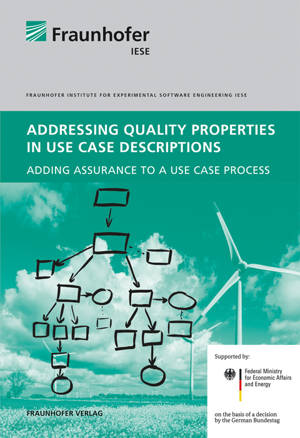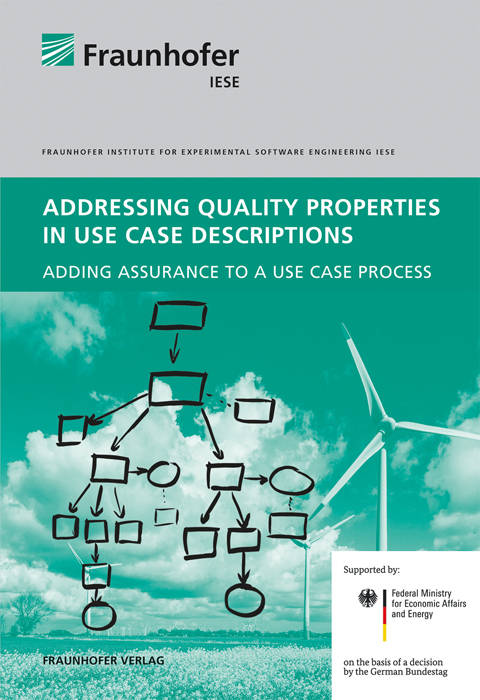
- Afhalen na 1 uur in een winkel met voorraad
- Gratis thuislevering in België vanaf € 30
- Ruim aanbod met 7 miljoen producten
- Afhalen na 1 uur in een winkel met voorraad
- Gratis thuislevering in België vanaf € 30
- Ruim aanbod met 7 miljoen producten
Zoeken
Addressing Quality Properties in Use Case Descriptions.
Adding Assurance to a Use Case Process.
Denis Uecker, Reinhard Schwarz, Ioannis Sorokos, Sebastian Hanna, Christine Rosinger, Mathias Uslar
Hardcover | Engels
€ 77,95
+ 155 punten
Omschrijving
Our future power grid is probably one of the most complex and most sophisticated critical infrastructures. Given the complexity of the smart grid and its safety and security challenges, requirements elicitation for smart grid solutions requires a systematic process to address these crucial non-functional system properties. The research described in this report was motivated by work carried out in the context of the "enera" project, a public research project funded by the German Federal Ministry for Economic Affairs and Energy (BMWi) within the funding program "Smart Energy Showcase - Digital Agenda for the Energy Transition" (SINTEG). Among the many project partners, the two research institutes Fraunhofer Institute for Experimental Software Engineering IESE and OFFIS - Institute for Information Technology conducted research on methods for systems and software engineering for complex systems and systems-of-systems. The outcome is a process for eliciting system-of-systems requirements, as well as an extension of the IEC 62559-2 use case template to address non-functional requirements. The activities in the use case elicitation process are accompanied and supported by an assurance case.
Specificaties
Betrokkenen
- Auteur(s):
- Uitgeverij:
Inhoud
- Aantal bladzijden:
- 119
- Taal:
- Engels
Eigenschappen
- Productcode (EAN):
- 9783839617243
- Uitvoering:
- Hardcover
- Afmetingen:
- 210 mm x 297 mm

Alleen bij Standaard Boekhandel
+ 155 punten op je klantenkaart van Standaard Boekhandel
Beoordelingen
We publiceren alleen reviews die voldoen aan de voorwaarden voor reviews. Bekijk onze voorwaarden voor reviews.








